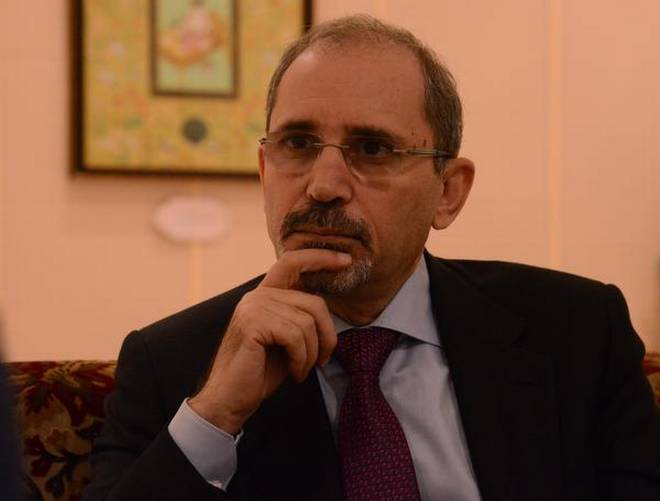The Jordanian Minister of Foreign Affairs Ayman Safadi was in Delhi for bilateral talks ahead of a planned visit by Jordanian King Abdullah II, his first since 2006. In an exclusive interview to The Hindu during his visit, Mr. Safadi says India can play an important role in the Middle East (Israel-Palestine) peace process.
There is a sense that India-Jordanian ties have not kept their promise from a decade ago. Would you agree?
The potential is enormous, and we have not lived up to it. Yes, trade is more than $2 billion, but most of that comes from trade in a few items like potash and phosphate and we would like to diversify. Jordan could be a market and would welcome investment from Indian companies, including in ICT, infrastructure and energy. His Majesty is looking forward to his visit in early 2018, as soon as possible, and we hope to create momentum to put us on a fast track of ties.
You spoke of opportunities, but equally Jordan is in a region in turmoil. Jordan itself houses millions of refugees from Palestine and Syria. How will this change in 2018?
For us, the core issue remains the Palestinian-Israeli conflict and there cannot be peace and stability in the region without a resolution to the conflict on the basis of a two-state solution that would allow an independent sovereign Palestinian state with Occupied (East) Jerusalem as its capital, on the lines of the 1967 situation, and that would allow a peaceful Israel as well. We want every country to support this. India has always had a very clear position in favour of a just, lasting peace, and we encourage India to be more engaged and would like to see more of an Indian role [in the peace process].
During Prime Minister Narendra Modi’s visit to Israel, the government said it was now de-hyphenating its relations with Palestine and Israel. Do you think it can still pay the role, you mentioned, in the peace process?
India has always stood on the side of justice, and that has always helped us in the peace process. The vote at the UN General Assembly [on Jerusalem] was a reaffirmation that India stands by the principles it has held through all these years of conflict. We value India’s role. It is not for us to judge its foreign policy, and India is a great and sovereign country, which will make decisions in the interests of its people. But we know we can count on India’s support for peace and the two-state solution, which is the only path to peace.
At the beginning of the Syrian crisis, Jordan was among the countries that provided shelter, and even training and funding to the ‘moderate opposition’ to the Assad regime. Over time, Daesh(Islamic State) drew its fighters from these very groups. Do you think, at hindsight, it was a mistake to arm and train them?
None of the Daesh fighters was trained in Jordan. Yes, Jordanian fighters did join Daesh, but that is a phenomenon across the world, and especially the Arab and Muslim world. Ultimately Daesh was able to exploit the suffering of the Syrian people and exploit their pain to further its own agenda of hate. It has been seven years now, and all of the need to pause and ask whether we dealt with the crisis in the right manner. Ignorance is Daesh’s best ally, and that is why we need to provide better education, to cleanse our textbooks and public discourse of hate speech. We cannot have double standards. We all must fight a narrative that seeks to create divide on race, religion and gender.
Does that extend to where India sees its threat, i.e. on terror groups based in Pakistan? In striking a balance in the region, would you in Jordan have difficulties bettering ties with India given close ties with Pakistan?
When it comes to terror, we are unequivocal, and we have rejected terror in all its forms. Jordan has also been consistent in calling for all states to resolve their differences and stand up to terrorism, which is the enemy of us all. In terms of India-Pakistan relations, Jordan has good relations with both countries, and what we would like to see is the two countries being able to resolve their differences and build a peace that Indian people and Pakistani people deserve.
Two years ago, India objected to the U.S. decision to sell F-16s to Pakistan, citing its support to terror groups that target India. Subsequently, Pakistan sought second-hand F-16s from Jordan. Has India raised this with you?
I am not aware of this, and I have no comment on the issue. We have good ties with both countries [India and Pakistan] and we would like to build on those ties.








